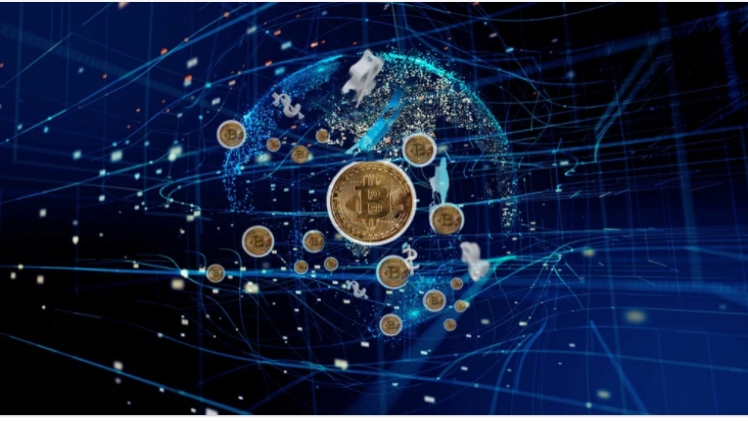Every day, new applications of blockchain technology are being discovered in Portugal and around the world. While most people associate “blockchain” with cryptocurrencies like Bitcoin and the financial sector, the technology is far beyond these narrow definitions.
Here, our author Martim Nabeiro, a blockchain expert, explains how the €40 billion online gaming industry embraces the technology.
Gaming Platforms are Leveraging Blockchain Tech for Payments
Traditional payment systems in the gaming industry are typically slow, clunky, and costly. Inefficiencies can also lead to skewed income distribution, as middlemen and large suppliers profit the most from them.
Players can transfer micropayments directly to the game creator via Bitcoin payments, making in-app purchases a breeze. Users can complete these transactions without the involvement of a third party. The form of trustless trading here is made possible by the immutability and security of blockchain technology.
Portuguese gamers benefit from the blockchain as well. A decentralised market allows game developers to sell their products directly to customers. This eliminates going through a controlled distribution channel like the Apple App Store.
As a result of cutting out the traditional intermediary, the developers only pay a fraction of what they would have otherwise spent in sales commissions. This is precisely the type of payment system that GameCredits is constructing. The initiative’s goal is to become the exclusive payment method for online gaming and blockchain gambling.
Our portugal expert Vitória believes that: “A maioria dos cassinos blockchain tem algumas das taxas de depósito e retirada mais baixas do setor. Pode visitar CasinoPortugal.online para ver e comparar avaliações de casinos online”.
Developers are Creating Blockchain-Driven Games
You may have heard of CryptoKitties and many other blockchain-based collectable-style games. However, it’s not only cute, blockchain gaming animals benefiting from the technology.
With Ethereum blockchain as its backbone, Decentraland is a virtual reality platform. As a result, you can own your portion of a virtual universe. For example, Decentraland is a universe where you can buy land and record the title on the Ethereum network.
You own the land and may do whatever you want with it. It’s a virtual cosmos filled with businesses, services, and social interactions. A player’s imagination is their only constraint in this world.
Blockchain Technology is Gamifying Real Life
Distinguishing between a virtual reality environment and one in the real world is getting more difficult by the day. AR games like Pokemon Go started this trend, which is now spreading to the blockchain. Thanks to the ease of using cryptocurrencies, it’s possible to earn money for real-world acts that you can spend on virtual platforms.
Things are only one example of how XP (experience points) is making this happen. Gaming platforms like PlayStation and Xbox are taking the first steps in that direction. Here’s how it all goes:
It’s possible to gain points, which can be exchanged for things and services in the game, by doing various tasks on the site. Getting an “A” on a math test can be one of these accomplishments, or it can be something as simple as obtaining a game achievement.
Virtual Goods Ownership is Now Possible Because of Blockchain Technology
The virtual products sector is now plagued by fraud. Segregated and centralised trading systems impose substantial expenses because of a lack of market trust. In addition, if a gaming site abruptly shuts down, your hard-earned money will be worthless.
Two initiatives, Wax and Enjin Coin, are working to alter the concept of virtual property ownership, but in slightly different ways.
Worldwide Asset Exchange (WAX) is an open-source framework for building virtual markets. The OPSkins team developed the platform and employs WAX tokens to allow you to trade virtual assets for cryptocurrencies. Despite focusing on online gaming, they claim that the platform can tokenize any virtual item.
By generating and controlling commodities directly on the Ethereum blockchain, Enjin Coin advances the concept of blockchain-based ownership even further. In addition, gaming communities use the Enjin Coin platform to build their currencies, products, and traits.
In addition, the project contains a smart wallet that allows you to exchange goods between different gaming platforms.
Conclusion
The introduction of blockchain-based casinos and gaming platforms drastically changes how Portuguese players entertain themselves.

